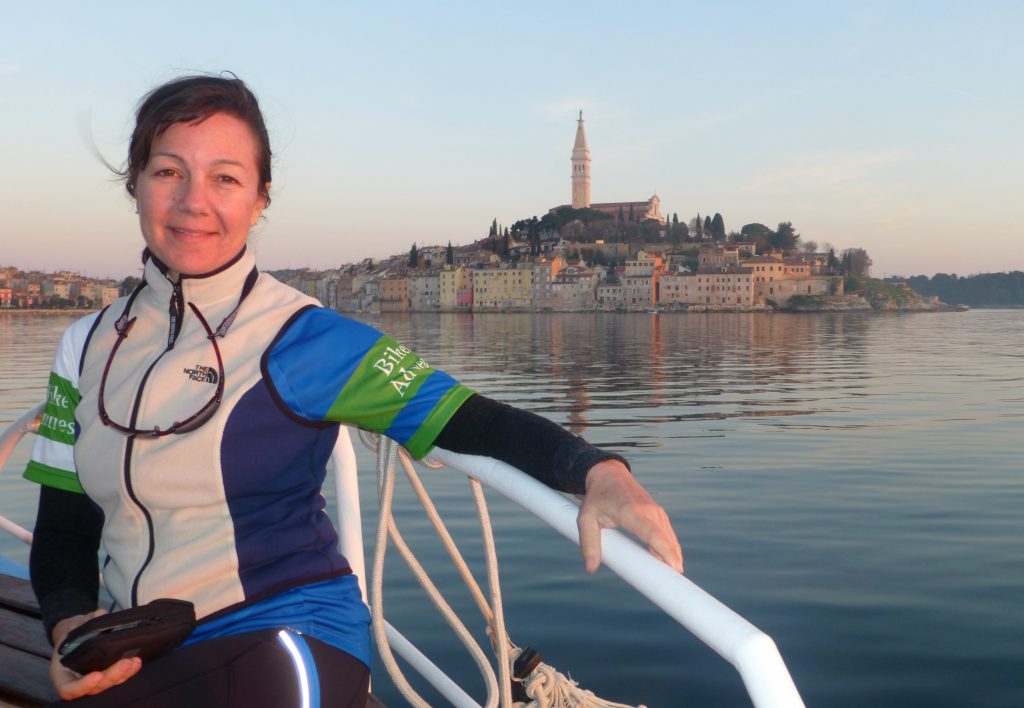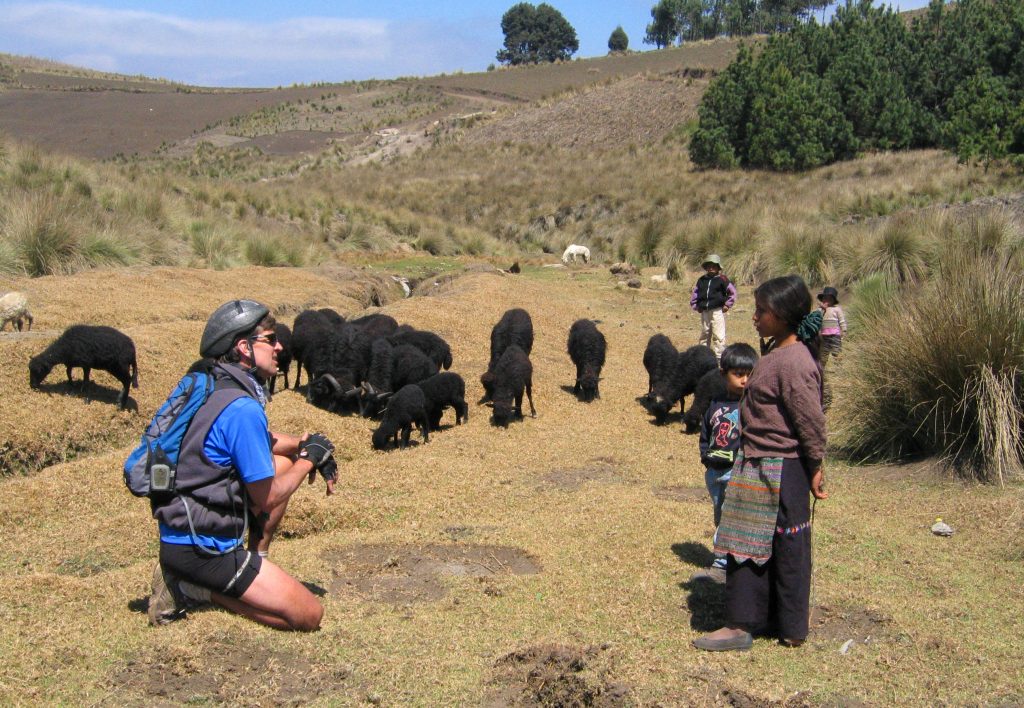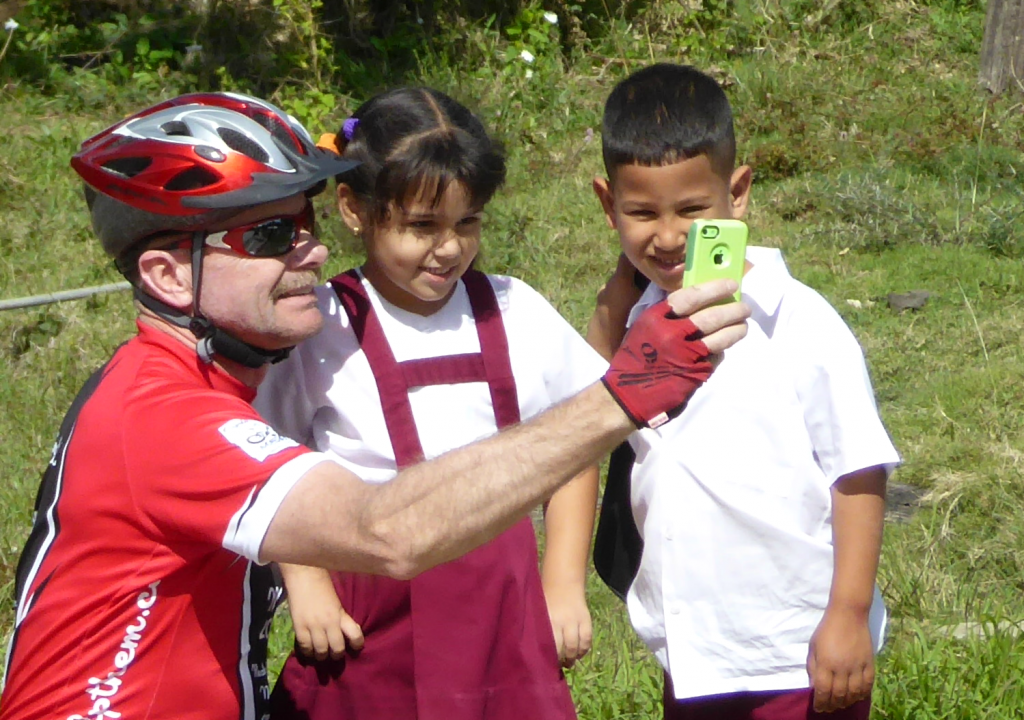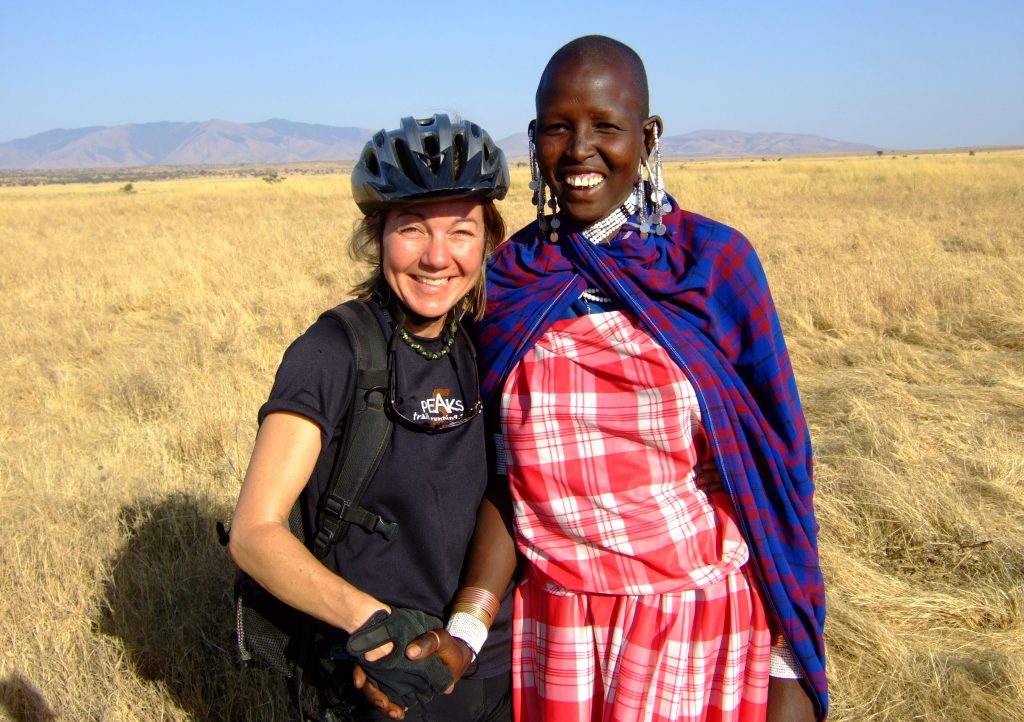In 1994, Trish Sare founded BikeHike Adventures with the intention of combining physical activity and cultural exploration. At the time of her company’s founding, Sare hadn’t encountered any other adventure travel companies deeply focused on marrying adventure activities with opportunities to connect with local communities, and she sought to fill that niche. Despite enormous growth in the industry since 1994, Sare continues to keep BikeHike Adventures’ founding values at the company’s core by meaningfully connecting with travelers and local communities around the world. Speaking with the Adventure Travel Trade Association (ATTA), Sare offered insight into how BikeHike Adventures fosters these relationships, what her experience has been working as a woman in the industry, and how she thinks adventure travel may change in the months and years to come.

ATTA: In the 23 years BikeHike Adventures has been in business, how have you seen the adventure travel industry evolve?
Sare: The adventure tourism industry has grown exponentially over the years, and, according to the Global Adventure Tourism Market, it is predicted to grow another 46% by 2020. There are far more adventure tour operators today than when we first began, offering various niche experiences. When we first began, there were a handful of players in the industry. This growth has increased our market share, but has made it a much more competitive landscape to navigate.
There have been countless shifts we've experienced over the years, but the digital age has been the biggest driver transforming the adventure market since our inception 23 years ago. The world has become much smaller, and cultures and destinations that were not exposed to tourism have become very easy for travelers to access with the evolution of the internet and social media. BikeHike began before the inception of the internet.
Destinations far off the beaten path and that mostly attracted backpackers, who were flexible with their expectations, started increasing in popularity. Many of those countries have developed into thriving tourism hotspots.
The middle price range has pretty much dropped out, and the majority of adventure operators today are serving budget or high-end travelers. Those luxury travelers have much higher expectations, as we are living in a world where money can buy pretty much anything, and consumers are accustomed to getting what they want, instantly. Ultimately, this has changed cultures as the local people do what they can to adapt to the needs of these discerning travelers, but at the cost of losing their authenticity. It is this authenticity that those travelers originally hoped to experience, albeit through a glass lens.
The information age was another huge shift in the market. Consumers became equipped with all the tools to arrange their own travel packages easily. The inception of airline booking engines, Airbnbs, and couchsurfing have made travelers far more independent. This has increased the popularity of customized trips, which is the majority of what we're offering today. For the first 15 years of BikeHike, the bulk of our business was group travel.

ATTA: What, if any, challenges do you face as a female business owner in the adventure travel industry?
Sare: I honestly don't think I've ever felt challenged in the industry as a female operator. Personally, I believe it is one of the factors that has led to much of our success. Women make up a larger percentage of travelers than men and are supportive of female entrepreneurs. We frequently hear praises from women that they've chosen us because this is a female-owned business.
Also, I have had a lot of support over the years from peers in the industry, including media, business groups, and mentors. In Canada, there are many proactive organizations for female entrepreneurs to help with education, recognition, funding, and mentorship in all aspects of running a successful business.
ATTA: What advice do you have for female entrepreneurs interested in becoming business owners in the adventure travel space?
Sare: The landscape is so much more competitive today then it was when I first began, which makes it much more challenging to succeed in this industry. I recommend building a strong network of industry veterans to reach out to for advice, support, and collaboration. The ATTA has been instrumental for BikeHike in this realm. Much of our success has been from the relationships we've developed through the Adventure Travel World Summit events.
Also, build innovative companies with itineraries that are not easy for travelers to put together on their own — something very niche and fills missing needs for today's consumers.
Lastly, always be prepared for the next major disruption, because there will be many that happen over the lifespan of a company. Continue to listen, learn, and adapt to the continuous shifts. If a company doesn't change with the times, it likely won't survive.

ATTA: BikeHike Adventures has always committed to environmental and social responsibility. What do you and your company do to continue improving in those areas?
Sare: Yes, responsible tourism is extremely important to us. We do our best to maintain a low impact on the resources we're using. For example, we have travelers bring water bottles and use refillable water jugs on biking trips to ensure we're not distributing multiple plastic bottles that end up in the landfill.
We've taken part in many causes over the years. For example, we participated in a garbage cleanup in Halong Bay, Vietnam. We have also donated a percentage of each sale to the Manjari Foundation in India; these funds were used to perform cataract surgery for those who have lost their sight working in the fields without eye protection. We continue to provide financial support after world disasters and are currently contributing to Kiva, supporting micro loans for people in developing nations so they can start businesses and create sustainable incomes for themselves.
We put a lot of attention into setting travelers’ expectations and ensuring everyone is mentally prepared for the destinations they are traveling to with an emphasis on cultural etiquette. For example, we make sure travelers know how to responsibly take photos of the local people and how not to encourage a begging society.
ATTA: Many of BikeHike Adventures' itineraries encompass opportunities for travelers to learn about local cultures. Why is this important to you, and how do you ensure the experiences are appropriate and beneficial for local community members?
Sare: All of our itineraries are designed to ensure our travelers are connecting with the local cultures. This is our mandate at BikeHike Adventures. We only work with local guides and suppliers, small family-run hotels, and indigenous communities. Our goal is to travel around the countries we visit by muscle power, meeting the people, staying in their hotels, eating in their restaurants and homes, and sometimes sleeping in their homes. Because we are traveling in small groups, many of our interactions with the locals are not planned or contrived, but spontaneous encounters, giving travelers authentic experiences of what a typical day looks like in the lives of the locals.
BikeHike was initially designed to give our travelers the opportunity to experience other cultures and live locally, while their money supports and benefits the people and communities we stay in. This also educates the local people that tourism is a viable and sustainable income rather than relying on destructive employment opportunities like poaching or deforestation.

ATTA: If you could look into the future ten years, what would you hope to see reflected back in terms of the adventure travel industry?
Sare: As the adventure market continues to grow and mainstream travelers become adventure travelers, my hope is that cultures and heritage around the world are not lost, and the local people maintain their distinct characteristics and customs. Many cultures are at risk of being lost because of mass tourism. The rise of the digital age is also one of the leading culprits.
Today's discerning travelers have very high expectations of what they want, and many of them expect what they have at home in the destinations they are visiting. There is a lot of focus on training other cultures to be ready for the expectations of the Western markets, yet more education should be on the Western markets being ready for the destinations as they are. Adventure travel is meant to be transformative and experiential, without changing the local people to be what the traveler expects them to be.
